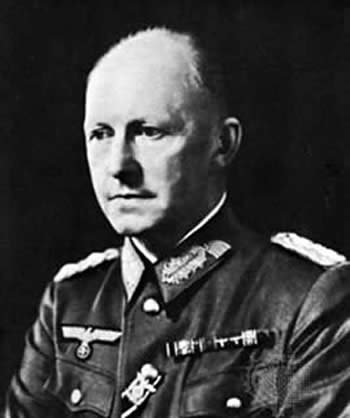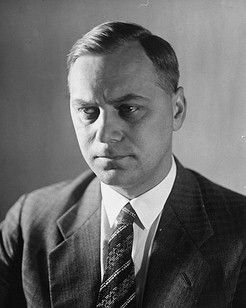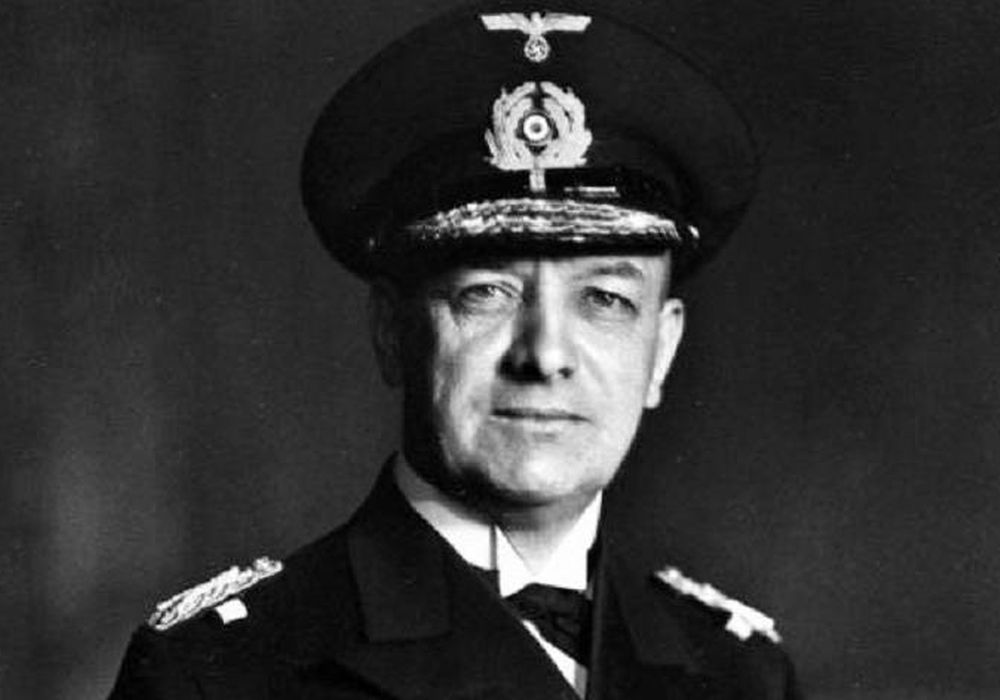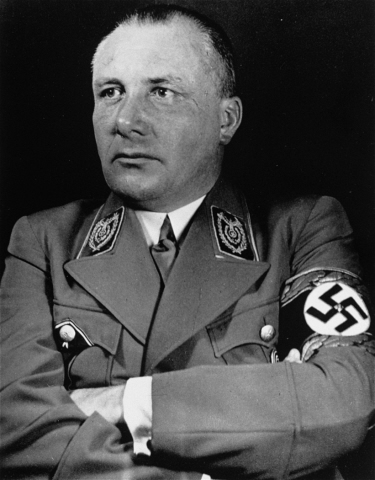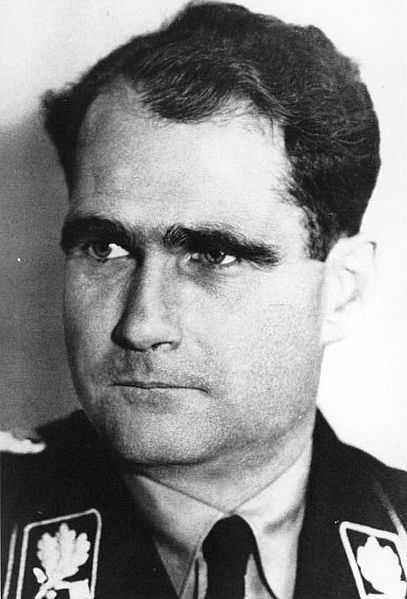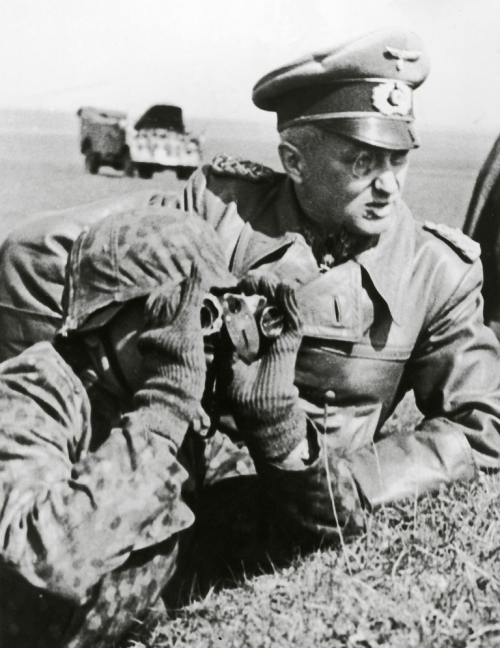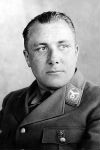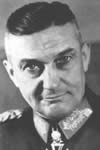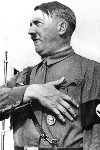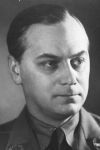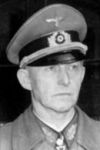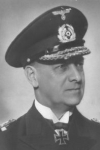Judgement at Nuremberg
The War Illustrated, Volume 10, No. 244, Page 435, October 25, 1946.
"MANACLED and heavily guarded to prevent any attempts at suicide, the 11 Nazi war criminals sentenced to death by the International Military Tribunal were today (October 2, 1946) moved to the condemned cells in a special isolated block of the Nuremburg prison. Some of them may ask to be shot instead of hanged," reported The Daily Telegraph. "In another part of the prison, were Papen, Schacht and Fritzsche, who were acquitted; with most of Germany demanding their retrial, the Allies did not consider it safe to free them completely until arrangements can be made to send them to their destinations." The seven who were sentenced to terms of imprisonment ranging from ten years to life awaited notification of the prison to which they would be transferred.
From the time when the first defendant, Goring, entered the dock on the afternoon of Oct. 1, 1946, it took only 42 minutes for the Tribunal to pass sentence on the 19 men found guilty. Goring listened to the level tones of Lord Justice Lawrence: "The evidence shows that after Hitler he was the most prominent man in the Nazi regime…..He developed the Gestapo and created the first concentration camps….Goring persecuted the Jews not only in Germany but in the conquered territories as well. There is nothing to be said in mitigation… his own admissions are more than sufficient to be conclusive proof of his guilt."
Called for Guns Instead of Butter
Then it was the turn of Hess, of whom the Russian Judge said: "He became Hitler’s closest friend and confidant, a relationship which lasted until Hess’s flight to the British Isles. In September 1939 Hess was officially announced as successor-designate to the Fuhrer after Goring….He urged the people to sacrifice for armaments. He repeated the phrase, "Guns instead of butter"….He blamed Britain and France for the war."
Delivering the Tribunal’s verdict on Ribbentrop, Lord Justice Lawrence stated: "He played a particularly significant role in diplomatic activity which led up to the attack on Poland….participated in a meeting on June 6, 1944, in which it was agreed to start a programme under which Allied aviators carrying out machine-gun attacks on the civilian population should be lynched." Of Schacht, it was announced "He was active in organizing Germany’s economy for war….The case against Schacht depends on the inference that he did, in fact, know of the Nazi aggressive plan….The Tribunal comes to the conclusion that this necessary inference has not been established beyond a reasonable doubt.
Keitel had his plea that "he was a soldier and acted under superior orders" rejected on the grounds that "Superior orders even given to a soldier cannot be considered in mitigation where crimes so extensive have been committed casually, ruthlessly, and without any military excuse or justification." Of Papen it was declared he could "be held guilty only if he was a party to the fostering of aggressive war….it is not established beyond reasonable doubt…." The third acquitted man, Fritzsche, was described as "best known as a radio commentator" who "sometimes made strong statements of a propagandist nature in his broadcasts, but one cannot hold they were intended to incite the people to commit atrocities on conquered peoples."
Kaltenbrunner as leader of the S.S. in Austria was active in the Nazi intrigue against that country, was aware of conditions I concentration camps and ordered the execution of prisoners therein. Head of an organization whose agents engaged in Nazi intrigues all over the world, Rosenberg knew of the brutal treatment meted out to Eastern Europeans. Responsibility for the ghettoes in Poland and systematic extermination of Jews were among points brought home against Frank. Largely responsible for bringing the German nation under complete control of the Nation Socialist party, Frick was also in large part responsible for legislation to suppress the trade unions, the Press and the Jews.
Five Million Doomed to Slavery
Streicher’s rabid anti-Semitism-incitement to murder and extermination-"constitutes a crime against humanity." Funk took part in the economic planning which preceded the attack on Russia and in the printing of roubles in Germany before the attack. U-boat crimes were proven against Donitz. Against Raeder, who urged attack on Norway, the most serious charge was that "he carried out unrestricted naval warfare, including warfare on neutrals. Raeder admits that he passed the order to shoot Allied prisoners of war down through his chain of command and did not object to Hitler about it." Schirach, corruptor of German youth, although not the originator of "the policy of deporting Jews from Vienna, participated in this deportation, though he knew that the best they could hope for was a miserable existence in the ghettoes of the East." Of Sauckel it was said the evidence showed he "was in charge of a programme which involved deportation for slave labour of some 5000,000 human beings, many of them under terrible conditions of cruelty and suffering."
Arch-planner of the war, Jodl "took part in all the conferences preceding the invasion of Russia, and signed the order to shoot commandos and prisoners of war." Seyss-Inquart’s cruelties in the three countries were established. Of Speer, it was recognized in mitigation that in the closing stages of the war "he was one of the few men who had the courage to tell Hitler that the war was lost." Neurath escaped the death sentence in that he "intervened with the security police and secret service for the release of many of the Czechoslovaks who had been arrested on September 1, 1939, and for the release of students arrested later in the autumn. In 1941 Von Neurath was summoned before Hitler, who complained that his regime had not been harsh enough." Bormann, tried in his absence, "was extremely active in the persecution of Jews…. If Bormann is not dead and is later apprehended, the Control Council for Germany may consider any facts in mitigation and alter or review his sentence if deemed proper."
When Lord Justice Lawrence and Mr. Justice Birkett returned to England, they commented on the bearing of the Nazis. Said Lord Justice Lawrence, "They behaved with great dignity and propriety throughout the whole trial," Mr. Justice Birkett adding, "Their behaviour in court was a model of dignity, and most impressive."... The first words of approval spoken for quite a long time-and almost certain to be the last.
THE VERDICTS AND SENTENCES
Death by hanging
Hermann Wilhelm Goering, 52, former Luftwaffe chief and successor-designate to Hitler. Guilty on all four counts, which were: 1. Common plan or conspiracy to wage aggressive war: 2. Crimes against peace: 3. War crimes: 4. Crimes against humanity.
Joachim Von Ribbentrop, 53, Hitler’s Foreign Minister and at one time Ambassador to London. Guilty on all counts.
Wilhelm Keitel, 63, former chief of the German High Command. Guilty on all counts.
Ernst Kaltenbrunner, 43, Himmler’s Deputy and former chief of the security police and S.D. (Security Service.) Guilty on counts three and four.
Alfred Rosenberg, 53, head of the Nazi ideology department and former Minister of Occupied Eastern Territories. Guilty on all counts.
Hans Frank, 46, former Governor-General of Occupied Poland. Guilty on counts three and four.
Wilhelm Frick, 69, former Protector of Bohemia-Moravia and ex-Minister of the Interior. Guilty on counts two, three and four.
Julius Streicher, 61, owner and publisher of the anti-Jewish newspaper Der Sturmer and Gauleiter of Franconia. Guilty on count four.
Fritz Sauckel, 48, Director of Man-power under the Nazis. Guilty on counts three and four.
Alfred Jodl, 56, Chief of Staff 1942-45. Guilty on all counts.
Arthur Seyss-Inquart, 54, Governer of Austria after the Anschluss and Commissioner for Occupied Holland 1940-45. Guilty on counts two, three and four.
Martin Bormann, 45, Hitler’s former Deputy. Guilty on counts three and four.
Imprisonment
Rudolf Hess, 52, Hitler’s former Deputy. He flew to Scotland during the War to propose peace terms. Guilty on counts one and two. Life imprisonment.
Walter Funk, 56, Reichsbank President, 1939-45. Guilty on counts two, three and four. Life.
Erich Raeder, 70, C-in-C German Navy, 1928-43. Guilty on counts one, two and three. Life.
Baldur Von Schirach, 39, Hitler Youth leader and one time Governor of Austria. Guilty on count four. Twenty years.
Albert Speer, 40, former Armaments Minister. Guilty on counts three and four. Twenty years.
Constantin Neurath, 72, Protector of Bohemia-Moravia, 1939-41, and former Ambassador in London. Guilty on all counts. Fifteen years.
Karl Doenitz, 55, C-in-C. U-boats until 1943, when he succeeded Raeder as C-in-C. German Navy, and Fuhrer from Hitler’s death until Germany’s surrender. Guilty on counts two and three. Ten years.
Discharged
Hjalmar Schacht, 69, former Reichsbank President and Minister of Economics. Charged on counts one and two. Not guilty on both.
Franz Von Papen, 66, diplomat and former Ambassador to Austria and Turkey. Charged on counts one and two. Not guilty.
Hans Fritzsche, 46, Goebbels’ assistant at the Propaganda Ministry. Charged on counts one, three and four. Not guilty.
Index
Previous article
His Majesty's Ships - H.M.S. King George V
Known familiarly in the Navy as “K. G. Five”, H.M.S. King George V has a displacement of 35,000 tons and a main armament of ten 14-in. guns. She was commissioned on October 1, 1940. In May 1941, a
Next article
Our War Leaders in Peacetime - Bevin
The Rt. Hon. Ernest Bevin, M.P., P.C. Became a Minister without graduating through the House of Commons. At the age of 59 he went straight from the polls into the key position of Minister of Labour an


